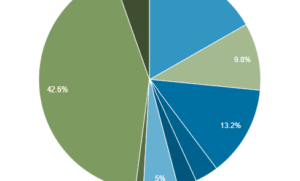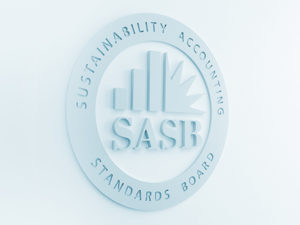
Jeffrey Hales, PhD, Chair of the SASB Standards Board
Smart investments often pay dividends—including those made outside financial markets. At the Sustainability Accounting Standards Board (SASB), we spent the last six years engaging with, listening to, and learning from industry experts, investors, and other market participants. As we prepare to codify the world’s first set of industry-specific sustainability accounting standards later this year, the payoff is obvious and enduring.
Among the many lessons we learned: Global markets and global issues call for global standards.
When we started our efforts, SASB’s initial focus was on developing standards for U.S. public companies. As we have worked diligently toward codification, our work has involved extensive outreach to investors, many of whom hold globally diversified portfolios. We also engaged in consultation with corporations, many with multinational operations. While building market-informed standards from the bottom up, one of recurring messages that we heard was the idea that, if financial capital is to move across borders, information needs to, as well. As the SASB Foundation president recently put it, if “sustainability issues don’t have borders, neither should our standards.”
As the chair of the standard-setting board, I am keenly aware that the value of SASB standards is closely linked to the credibility of our principles, the rigor of our process, and the quality of the work we produce. Each of these aspects of our efforts has contributed to standards that are globally valuable. How?
- The standards are industry-specific—not country-specific
- They are for all companies to use—not just public or private firms
- They can be used for any and all communications with investors—not just for regulatory filings
For global companies and global investors to communicate effectively about global issues, nothing short of a globally relevant approach will do. Thus, going forward, SASB’s approach to maintaining the standards will concentrate on ensuring they live up to their promise in serving global capital markets.
First, SASB will continue to maintain a laser-like focus on financial materiality.
Viewing sustainability through this lens not only helps SASB identify the most relevant and broadly applicable industry-specific factors, it also serves as a common denominator for market participants around the world. Whether you’re a corporate professional in Asia or a shareholder in Europe, you share a common interest in financial and non-financial factors that are likely to significantly impact a company’s financial condition or operating performance.
Secondly, SASB will pursue greater alignment with other frameworks to ease global implementation.
While SASB uniquely focuses on investor audiences, there are many global reporting frameworks that help companies measure and report sustainability information to a wide range of other stakeholders—from employees, customers, and investors to suppliers, regulators, and civil society organisations. One recurring theme we have heard from market participants is that, to make real progress, the market needs complementary—not competing—management and reporting frameworks.
Although we have always worked toward alignment—for example, the provisional SASB standards reference some 200 sources, with roughly half of those outside the U.S.—we can do better. Thus, as we look ahead, SASB will place greater emphasis on how it complements other approaches, including the recommendations of the Task Force on Climate-related Financial Disclosures (TCFD), the framework of the Climate Disclosure Standards Board (CDSB), and the Global Reporting Initiative (GRI). Whether used alone, alongside other reporting frameworks, or as part of an integrated report, SASB standards and metrics enable companies to communicate with investors in a detailed, powerful way.
Finally, SASB will develop feedback loops that keep us close to global markets.
SASB’s standard-setting is an iterative process, with the goal being that the standards will evolve hand-in-hand with market issues, understanding, and best practices. With that in mind, we have begun to recruit for Sector Advisory Groups comprised of experts from leading global companies, who will provide SASB with feedback and advice on the content and use of the SASB standards—including international considerations.
In pursuing its mission, SASB aims to facilitate more focused companies, better informed investors, and more stable and resilient 21st century markets. By explicitly addressing how sustainability factors transcend national borders, we look to reinvest in the markets we aim to support—and that have enthusiastically supported us, in turn.
Jeffrey Hales is the Catherine W. and Edwin A. Wahlen, Jr., Professor of Accounting at Georgia Institute of Technology’s Scheller College of Business and the Chair of the Sustainability Accounting Standards Board.

